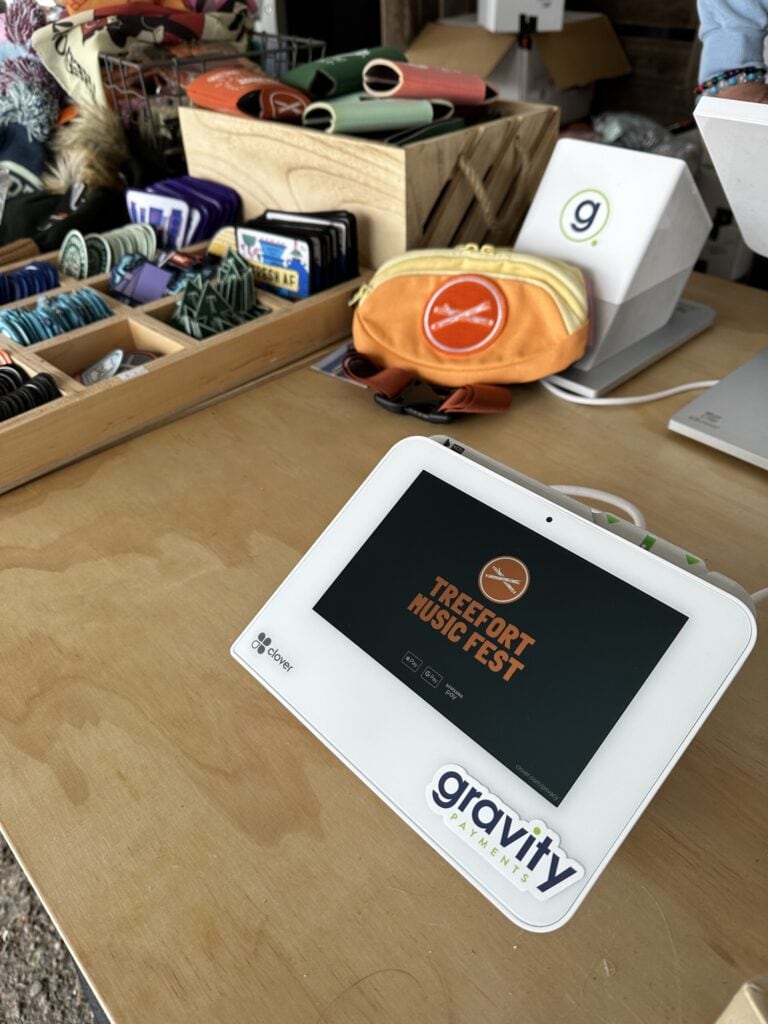Mitch Esplin is still surprised.
It’s been five years since he began working at this company, and he still can’t believe it. Talking to him, you get the sense he wakes up each morning feeling a little like Rip Van Winkle.
“It’s hard to believe I’m still sitting here today,” he says. “It’s been a wild ride.” 
But Mitch knows exactly how he ended up here. His astonishment comes more from reflection; When he talks about the last five years, he still can’t believe things worked out the way they did.
They weren’t supposed to.
Raised in a Mormon family in Utah and later Idaho, Mitch learned there was only one path to success–in this life and the next: work hard, get a good education, and you’ll do well. Mitch never bothered to question this philosophy. It had worked for his parents and most of his family members and it jived with the values he perceived growing up as a middle-class American in the nineties.
There was just one problem. “Education” in this sense was synonymous with “college,” and college meant a four-year degree by the time you’re 22.
“The belief in that culture is, if you don’t have a college education, you’re going to be homeless and die in a ditch somewhere,” Mitch says. “They paint this very almost apocalyptic picture of your life. It’s a very extreme contrast between people that go to college–[they] are super successful, they make all this money, they have a house, they have all the success in life. And they contrast that with people that don’t go to college or drop out or don’t finish.”
Mitch seems like the kind of person who would excel in academia. He’s an avid reader and extremely curious. After working with him for any length of time, it becomes apparent he’s not afraid of a challenge or hard work. Even so, a couple of years after enrolling in Boise State University to study information technology, he dropped out.
“Most of my schooling life, I tried to take it seriously,” Mitch says. “I never did super well. I was an average student. I wasn’t great, but I wasn’t horrible either. All through elementary school, middle school, high school, I did basically the minimum I needed just to get by and graduate. I didn’t love it but I didn’t hate it either.”
Get the Gravity newsletter for the latest FAQs, tools, tips and tricks
College, however, was different. Unlike K-12 education, which is free and required by law, the choice to attend college was, ostensibly, his. “For me, however, I did it just because it was expected of me,” he says. “And I think that put a lot of pressure on me, and I think that pressure in a big way affected my overall experience with college because it was taxing on me mentally. Because not only are you there accumulating a sizable amount of student debt, you’re also expected to do a fairly enormous amount of work that takes up nearly all your time. I barely had time to work a part-time job just to pay the rent and the apartment I was living in.”
College can be a difficult transition for anyone. For many students, it marks the first time they’re living on their own. Combine that with any financial or social pressure they may be juggling and even those who tend to do well in school can crack. For Mitch, though, there was an additional element that made the experience even more taxing: his pragmatism.
“I didn’t feel like [the education I was getting] was really contributing to me in any meaningful way,” he says. “I was taking all these expensive classes and I just didn’t see how they were going to help me in a career. I guess just to be a good, general, well-rounded person, having this knowledge and having those experiences are healthy and good for you. But on the same token, I was a little over two-and-a-half years in before I actually started taking advanced courses that applied to my major, and I just didn’t understand the purpose of that.”

Mitch (third from left) with his family.
Early in his junior year, all of these things came to a head, and Mitch decided to leave BSU. His parents weren’t thrilled, but they accepted his decision when he promised them he would eventually return to school and finish his degree. He fully intended to keep that promise–and still does–but life had other plans.
In June 2014, Mitch took a job in tech support at ChargeItPro, a payments technology company that Gravity acquired in 2017. “I didn’t have any plans for actually sticking around there very long,” he says. “I was going to stay maybe a year or so and then find something else to do.”
That’s when the surprises started.
“I ended up just falling in love with what I was doing,” he says. “I liked everyone I worked with. My manager at the time, I really liked him. We got along great and it just started to turn into a passion. I really started to embrace and make that job part of my identity in a way. And other people I was working with saw that. The owners of the company at the time also noticed that I was really embracing what I was doing. And I started to rise pretty fast.”
Within a year Mitch was promoted to the business development department where he helped ChargeItPro’s software partners fix issues that arose as part of their integration with the company’s payment platform. At the time, the department was small and, despite having only a year of hands-on experience, Mitch became the go-to expert for anything technical. “I was really the only one doing it at the time, and I basically had to teach myself everything I was doing about that job. But I didn’t have an escalation path. I didn’t have anyone above me to take a problem to if I couldn’t figure it out. I was it. If I couldn’t figure out a problem, well, I had to figure it out one way or another. It forced me to learn everything I was doing as I was doing it. If I didn’t know how to do something or I didn’t know a particular way of accomplishing some integration task, I was on Google, I was on programming forums, I was just looking up whatever information was out there to help me solve this problem or provide this answer to a partner.”
Although there was pressure to perform, Mitch thrived under it. Unlike with school, his job allowed him to learn things that were immediately practical and helped people. He felt like he was acquiring skills and knowledge that would actually help him succeed in life–and instead of taking on debt to do it, he was getting paid for the privilege. “This job, it basically taught me how I can learn things and I can better myself,” he says. “I can learn how to do my job better. I can learn how to just live my life better on my own….I don’t need a $100,000 piece of paper framed on my wall in my den to certify that I know how to do that when it’s something you can just do on your own.”
When Gravity acquired ChargeItPro in the Spring of 2017, Mitch assumed things would change for the worse. He knew that, in most cases, acquired companies don’t fare so well as the buyer seeks to cut costs and harvest as much value from existing intellectual property and revenue streams. He assumed he would lose his job–especially since he didn’t have a degree–and the instability and uncertainty started to take its toll.
“I’ve always had issues with anxiety. I’ve dealt with depression, sometimes pretty severely on and off throughout my life. When it comes to change, in my mind the association with change is instability, which I don’t handle mentally very well. I don’t like the unknown. I don’t like not knowing what’s going to happen next. In that respect, the acquisition was troubling and it was a fairly stressful time for me.”
Yet again, he was surprised.
“Not only did they keep me around, Tammi Kroll, our Chief Operating Officer, actually sat me down and said, ‘I like the way you work, keep it up. You’re valuable here and we need you.’ And I just never thought in my wildest dreams that I would be able to handle going through that big of a change for the better and be able to have stability in my job and not get completely stressed out and not get completely overwhelmed by all the change that was happening at the time.”
Then came the third surprise: Mitch not only weathered the merger, he excelled even more under Gravity’s culture and leadership. Although he had learned a lot from the leadership at ChargeItPro, the culture there had been notoriously bureaucratic and traditional. Employees were expected to be in the office for their full shifts, even if their jobs didn’t actually necessitate them showing up in person. Decisions also had to be vetted by managers and the company owner before they moved forward, leaving those on the front lines with little autonomy. Under Gravity’s Be Your Own CEO philosophy–which empowers each employee to exercise their own judgement when making decisions or solving problems–Mitch was able to learn even more and ascend in his career even further. As of this writing, he’s transitioning to take over one of ChargeItPro’s core products and, as a result, will be managing one of the company’s engineering teams.
As for what’s next, Mitch doesn’t see himself leaving Gravity anytime soon, though he still intends to finish his degree. “I would do it just for a sense of self-betterment and also just a sense of accomplishment, just to know that I can finish what I start,” he says. “If nothing else, just for that reason, it would be just a sense of accomplishment just to say, ‘Hey, I was able to finish this even though it was hard.’”
He also acknowledges the reality of the job market, though he hopes companies will eventually stop placing so much value on college degrees when deciding whether to hire qualified candidates.
“Gravity’s core culture belief of ours is ‘we hire people, not resumes.’ And I can tell you from firsthand experience that we stand by that, which I think is a good thing. I think a lot of companies maybe miss out on some really talented people and some real valuable talent just because they can’t put a BA or BS next to their name. I’m not saying that having that degree isn’t valuable at all, but I think that shouldn’t be a deal breaker for people in determining, either qualifications for a job or even more abstractly, just a success in life. Just because you don’t have a bunch of letters after your name doesn’t mean you can’t be successful, or at the very least make a good, comfortable living for yourself and be able to just live a quality life. I just think that idea that our society still tends to hold is wrong.”
Written by Brooke Carey, Lead Storyteller
“Humans of Gravity” is a profile series designed to highlight the unique individuals who comprise our team. Gravity Payments believes in celebrating our shared humanity by letting employees bring their full selves to work. Interested in joining this amazing group of people? Check out our Careers page for the latest opportunities.



